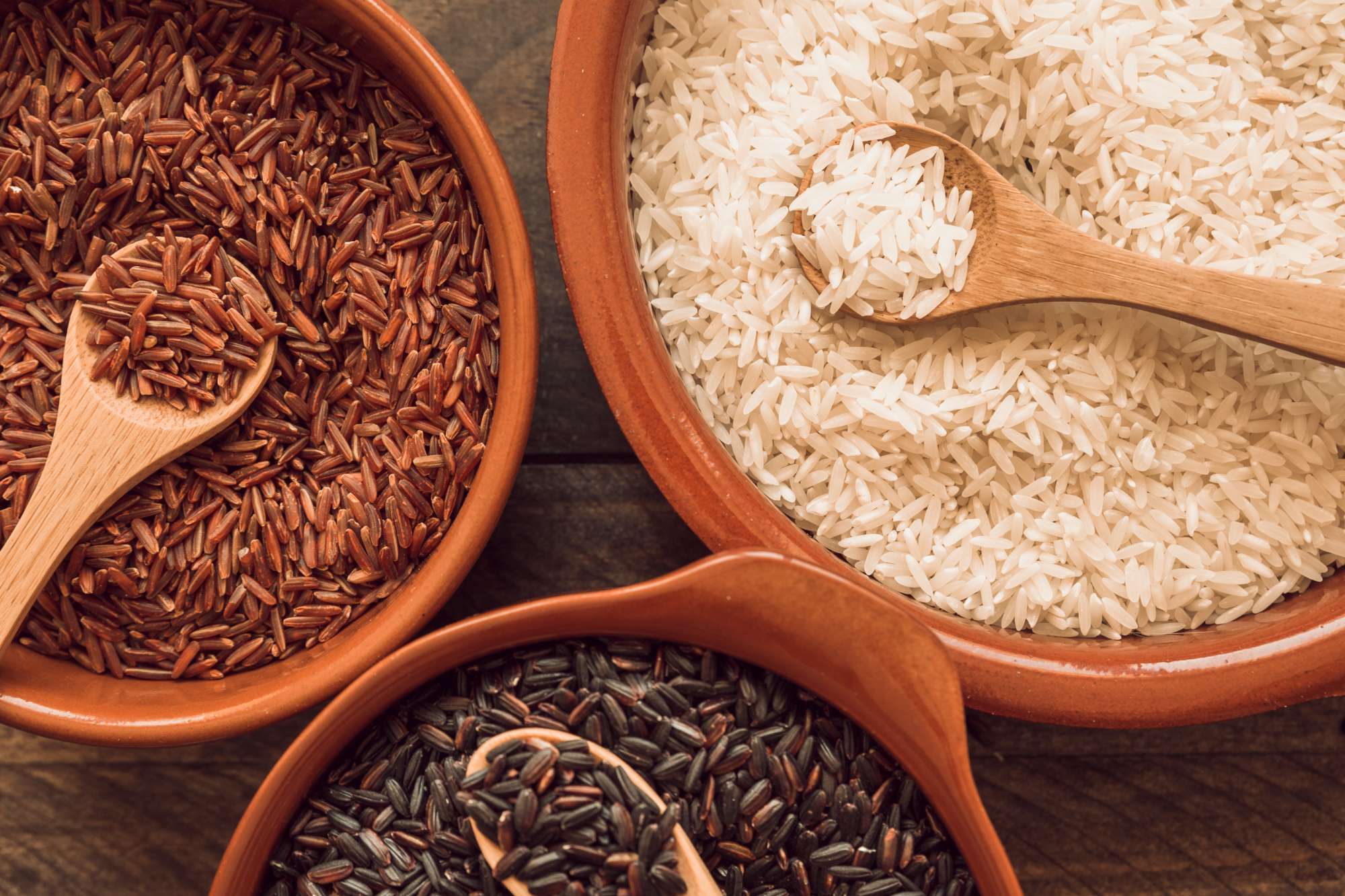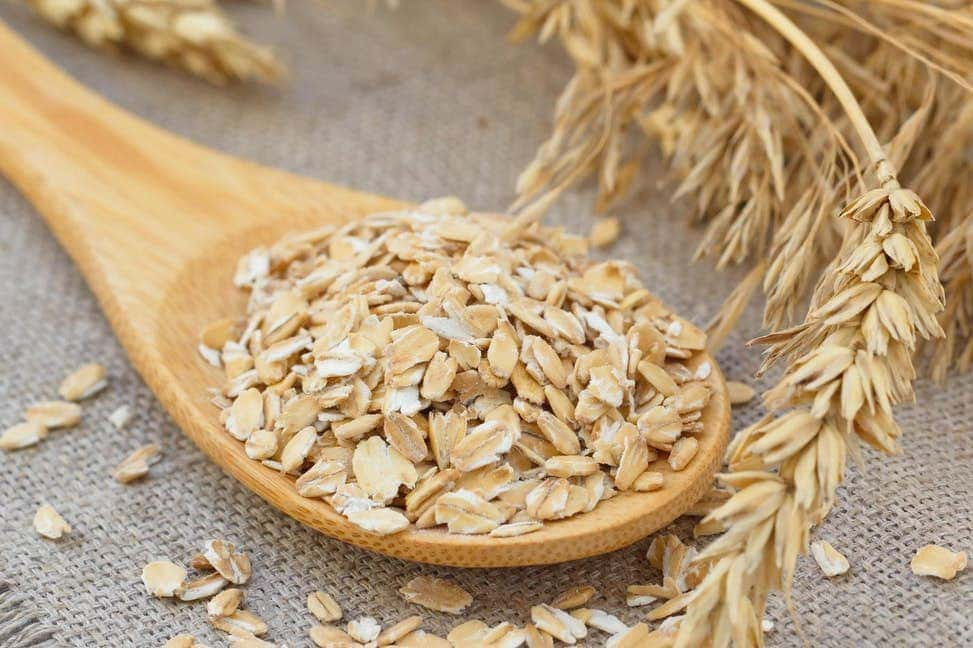Moringa oleifera and 13 Health benefits
Moringa oleifera and 13 Health benefits
Moringa has many benefits and uses on health, beauty and helping to prevent and cure disease. In addition to containing vitamins, minerals, calcium and potassium, moringa contains 18 of the 20 amino acids - the building blocks of proteins found in the human body, antioxidants - flavonoids, polyphenols and ascorbic acid - fights free radicals that lead to inflammation, cell damage and oxidative stress.
Moringa oleifera
It has many different names depending on the part of the plant, such as drumstick tree, miracle tree, oil ben tree or horseradish tree.
Moringa oleifera is a fast-growing, drought-resistant plant. It belongs to the Moringaceae family, native to the Indian. The moringa tree is grown mainly in semiarid, tropical, and subtropical areas. Moringa is particularly suitable for dry regions.
The tree is about 10 to 12mm tall with a trunk diameter of about 45cm. The bark is gray-white and covered with a thick layer of cork. Young twigs purplish or bluish-white hairs, bark hairy. The tree has a wide canopy including many drooping, fragile branches.
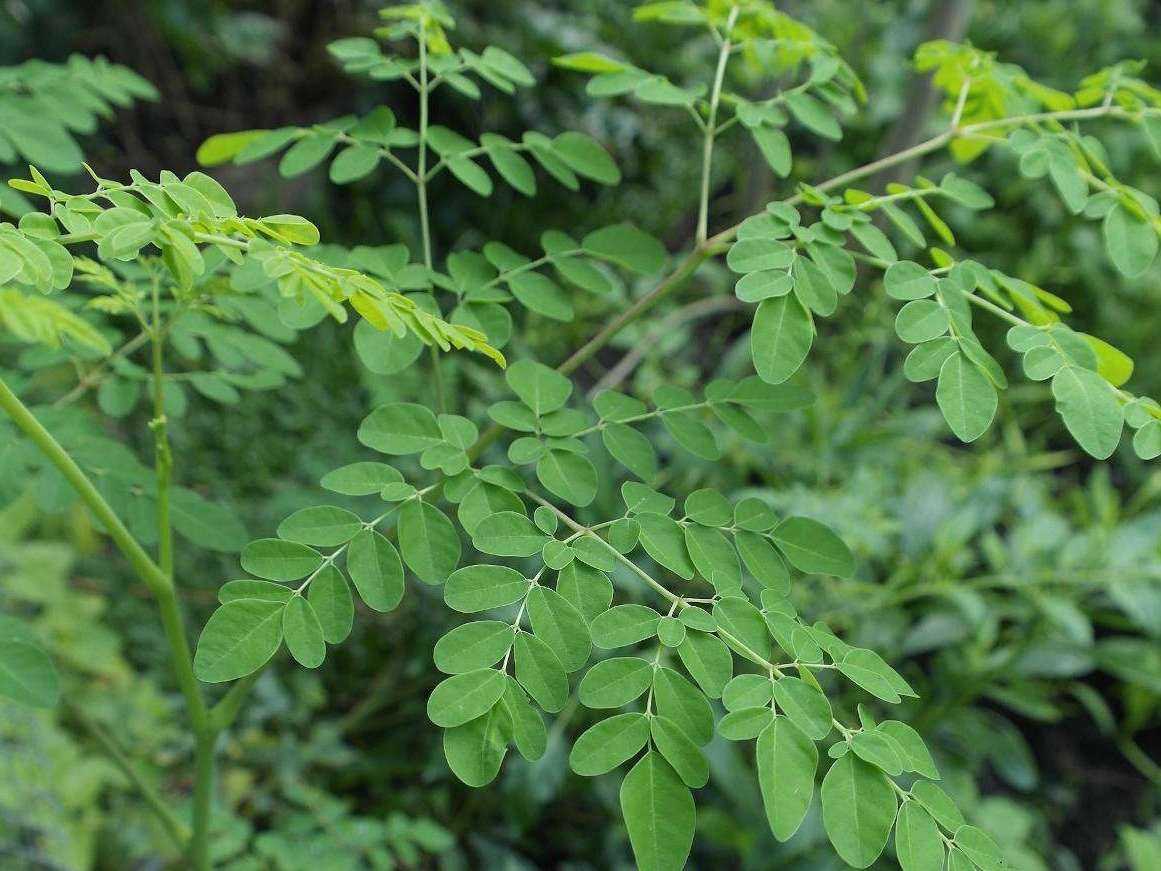
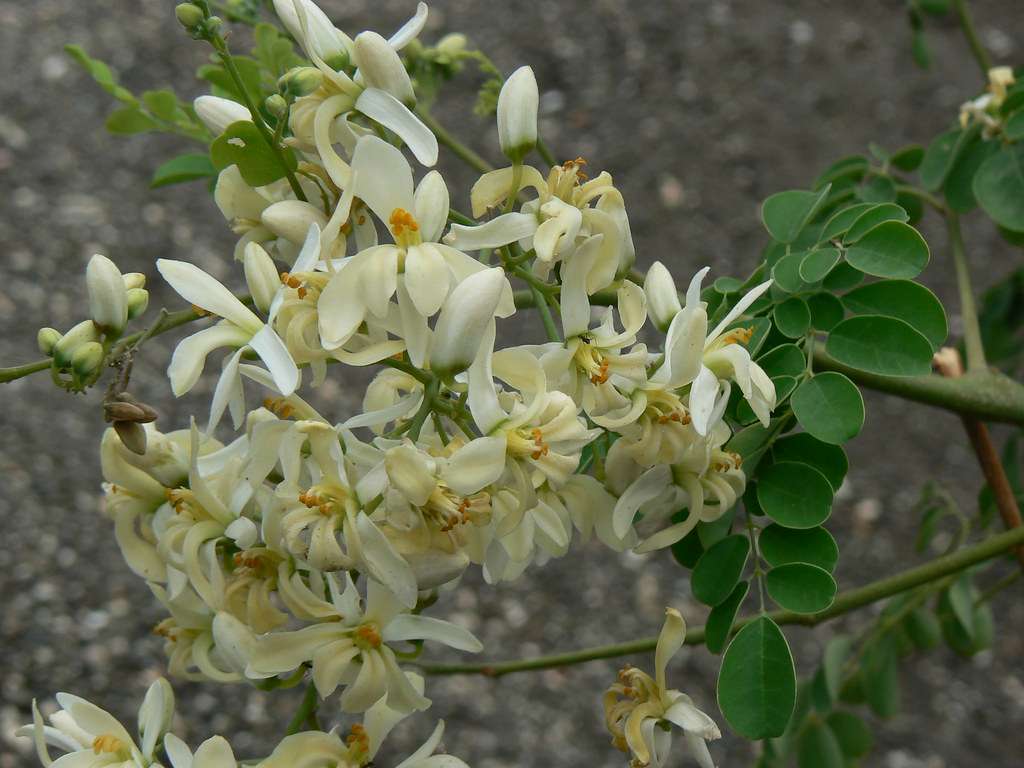
Moringa flowers are bisexual, fragrant. The petals are white to yellow with thin veins. The flower is about 1.0–1.5 cm long and 2.0 cm wide. They grow on slender stems, inflorescences spreading or drooping, 10–25 cm long. The plant flowers for about the first six months after planting. In seasonally cooler regions, the plant usually blooms only once a year in late spring and early summer. Under more stable seasonal temperatures and with constant rainfall, the plant can flower twice or even year-round.
The fruit is a hanging three-sided brown capsule, 20–45 cm in size, containing dark brown spherical seeds, about 1 cm in diameter. The seeds have three papery white petals and are dispersed by wind and water.
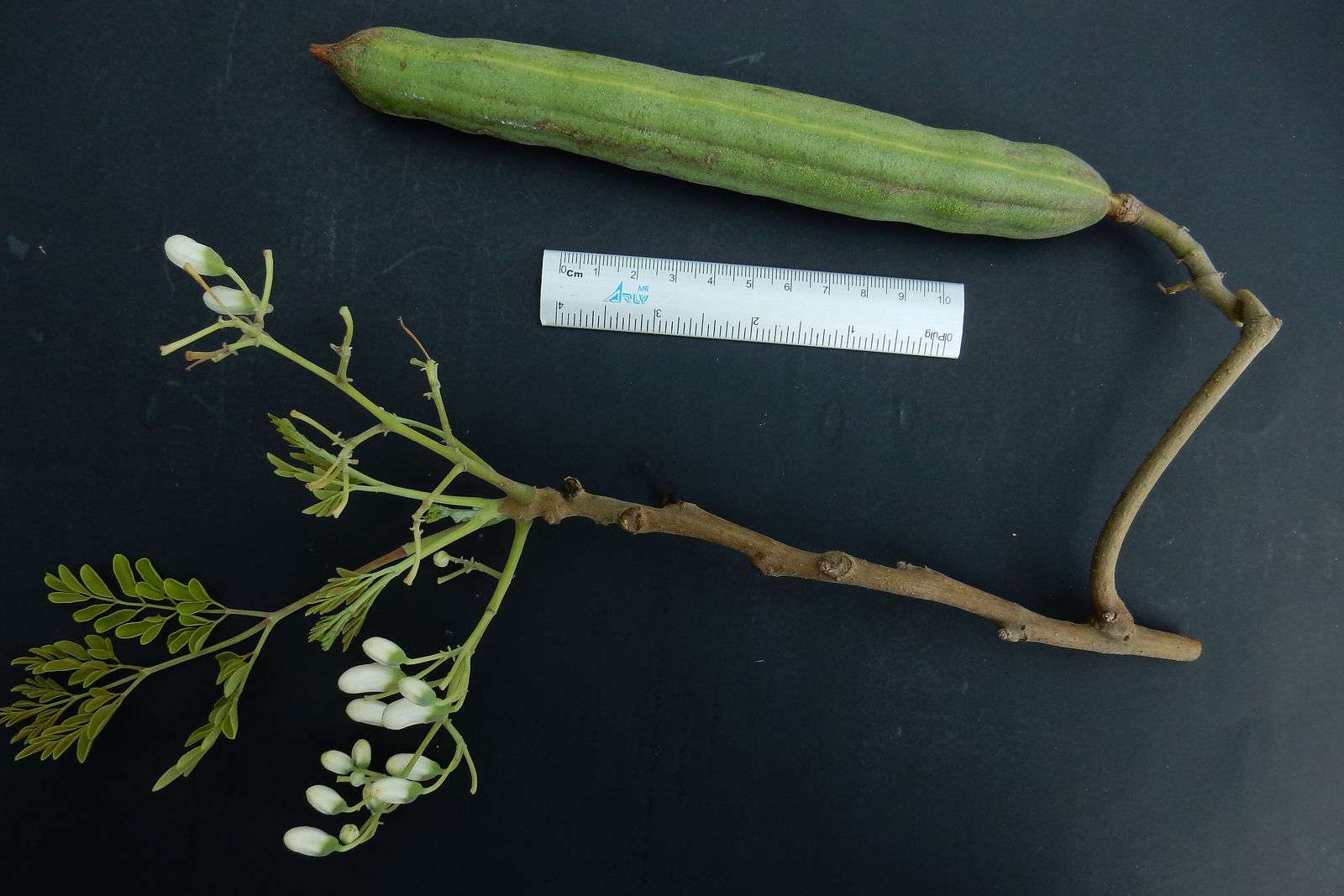
Nutrients of Mogarin
| Nutritional value per 100g M. oleifera leaves, raw | ||
| Energy | 64kcal | |
| Carbohydrate Dietary fiber |
8,28g |
|
| Fat |
1,40g |
|
| Protein |
9,40g |
|
| Vitamin ↓ |
Quantity |
%DV |
| Vitamin A Thiamine (B1) Riboflavin (B2) Niacin (B3) Axit pantothenic (B5) Vitamin B6 Folate (B9) Vitamin C |
378μg |
47% |
| Minerals ↓ |
Quantity |
%DV |
| Calcium Iron Magnesium Manganese Phosphorus Potassium Sodium Zinc |
185mg |
19% |
| Water |
78.66g |
|
| Unit: μg = micrograms • mg = milligrams IU = International units |
||
| Nutritional value per 100 g M. oleifera pods, raw | ||
| Energy | 37kcal | |
| Carbohydrate Dietary fiber |
8.53g |
|
| Fat |
0.20g |
|
| Protein |
2.10g |
|
| Vitamin ↓ |
Quantity |
%DV |
| Vitamin A Thiamine (B1) Riboflavin (B2) Niacin (B3) Axit pantothenic (B5) Vitamin B6 Folate (B9) Vitamin C |
4μg |
1% |
| Minerals ↓ |
Quantity |
%DV |
| Calcium Iron Magnesium Manganese Phosphorus Potassium Sodium Zinc |
30mg |
3% |
| Water |
88.20g |
|
| Unit: μg = micrograms • mg = milligrams IU = International units |
||
Plant parts such as bark, sap, roots, leaves, seeds and flowers all contain trace elements and valuable mineral content. It has anti-fungal, antiviral, anti-depressant and anti-inflammatory properties, so it is widely used in traditional medicine and also in cuisine.
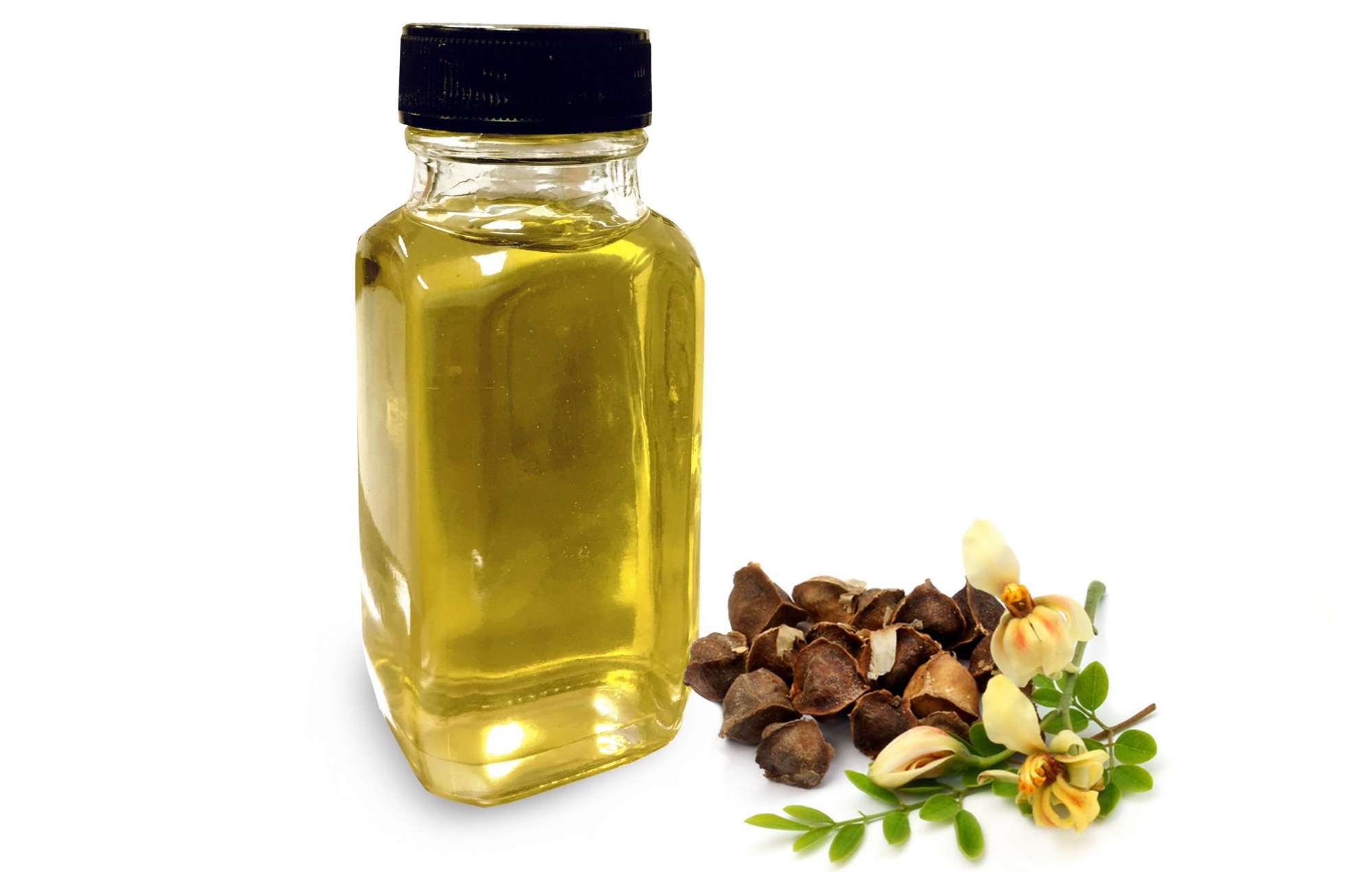
Seed oil can be used as a food supplement, as a base for cosmetics, for hair and skin.
The young rind of the Moringa tree, commonly known as "drumsticks", is used in culinary dishes, it is often cut into short lengths and stewed in curries and soups. It has sweet taste. The aroma is described as reminiscent of asparagus, with a hint of green beans.
The leaves can be used in many ways, perhaps most commonly added to clear broth soups. Moringa leaves, finely chopped, are used as a garnish for vegetable dishes and salads. It is also used in place of or along with coriander.
Moringa leaf powder is often added to soups, sauces and smoothies. Due to its high nutritional density, moringa leaf powder is considered a dietary supplement and can be used to enrich dairy food products, such as yogurt and cheese, to baked goods, such as bread and cakes.
The seeds are prized for their bitter taste. They are often added to sauces or eaten as a fried dish. Edible seed oil can be used in condiments or sauces.
Crushed moringa seeds are suitable as a supplement to increase the protein, iron and calcium content of flour.
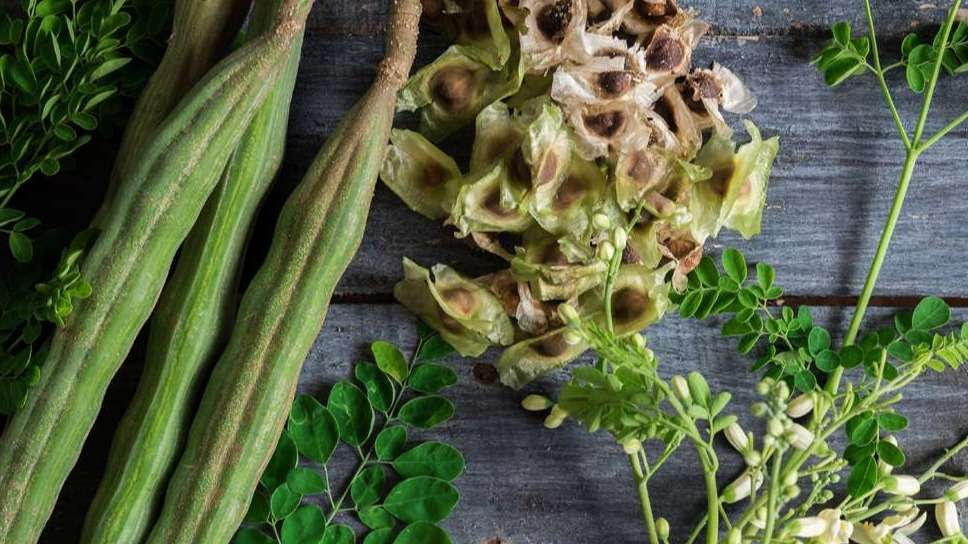
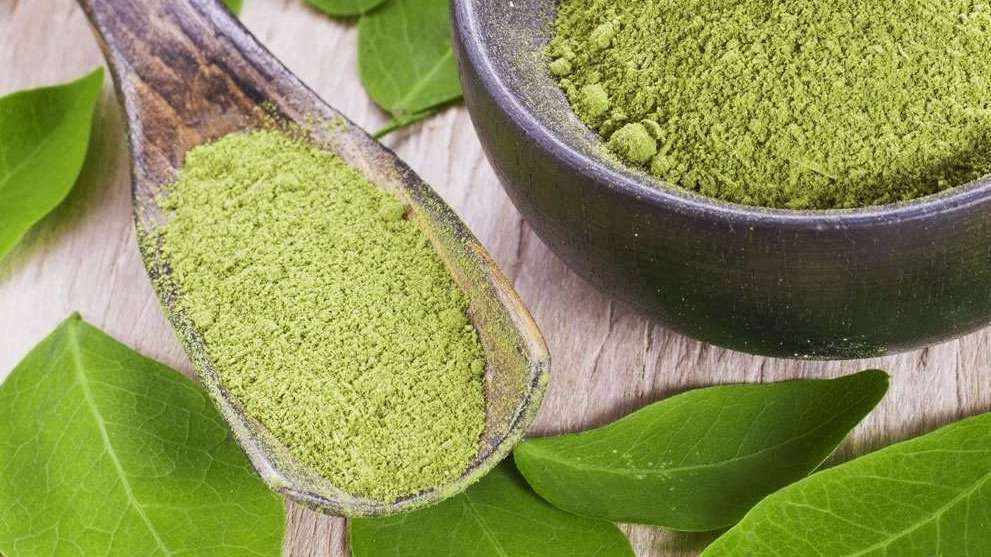
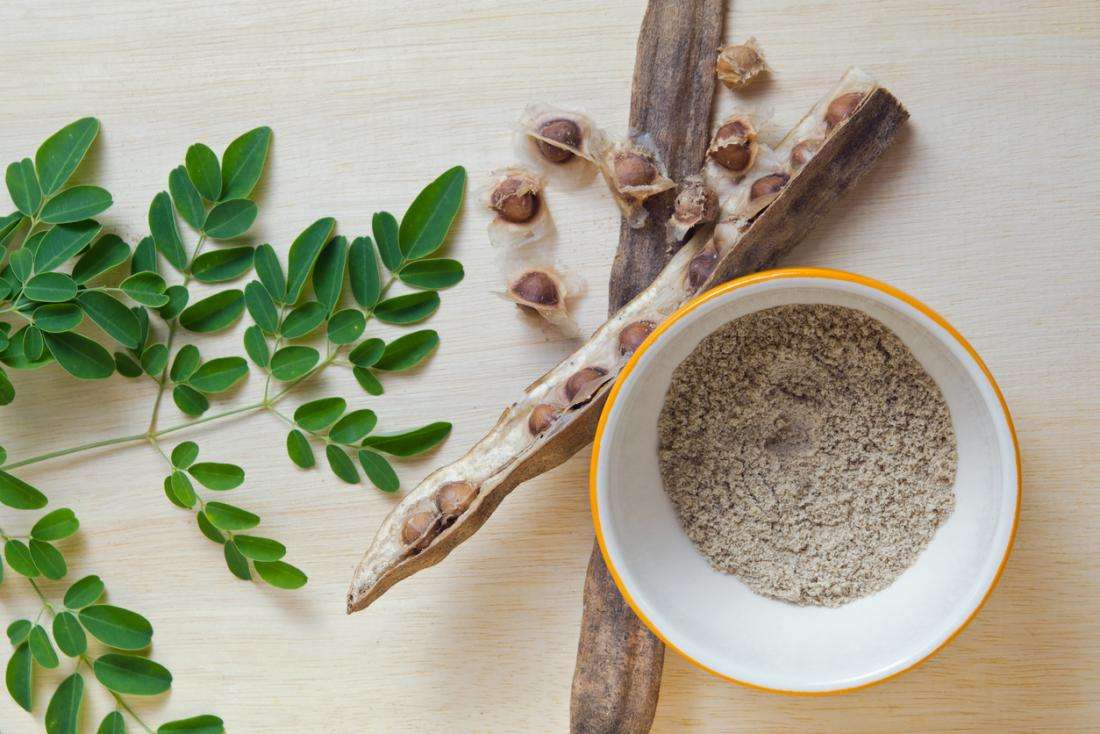
13 Health benefits from Moringa oleifera
Moringa is believed to have many benefits and its uses range from health and beauty to helping prevent and cure diseases. The benefits of moringa include:
1. Protect and nourish skin and hair
Moringa seed oil is rich antioxidants and fatty acids for protecting hair against free radicals and keeping hair clean and healthy.
Seed oil is a moisturizing, anti-inflammatory option for skin, nails, and hair. It can aid in skin protection, aid in wound healing, balance oil production on the scalp and even delay signs of aging.
Moringa also contains protein, which means it is helpful in protecting skin cells from damage. It also contains moisturizing and detoxifying factors, which strengthen the skin and hair.
2. Improve eye health
Moringa contains eyesight-improving properties thanks to its high antioxidant levels. Moringa may stop the dilation of retinal vessels, prevent the thickening of capillary membranes, and inhibit retinal dysfunction.
3. Protect health liver
Due to the high concentration of polyphenols in moringa, it keeps the liver safe from toxicity, oxidation and damage.
4. Prevention and treatment of cancer
Moringa's ability to prevent cancer from developing is due to its antioxidants - flavonoids, polyphenols and ascorbic acid - which fight free radicals, molecules that lead to inflammation, cell damage and oxidative stress. It also contains niazimicin, which is a compound that stops the growth of cancer cells.
5. Boosts Brain Health
The antioxidants reduce nerve cell degeneration and improve brain function. Studies show that moringa leaves may protect against the symptoms of Alzheimer's disease and may even delay the onset of the disease. Moringa extracts are said to be helpful in treating depression, anxiety, and fatigue.
6. Protect the cardiovascular system
The powerful antioxidants found in Moringa extract can help prevent heart damage, maintaining a healthy heart. Due to it helps control lipids, moringa can prevent plaque formation in the arteries and lower cholesterol levels. This reduces the risk of cardiovascular disease.
Moringa may help reduce high blood pressure because it contains isothiocyanate and niaziminin, compounds that help prevent arteries from thickening, which can cause blood pressure to rise.
7. Treatment of anemia and sickle cell disease
Moringa can help a person's body absorb more iron, thereby increasing their red blood cell count. It is thought that the Moringa's extract is useful in treating and preventing anemia and sickle cell disease.
8. Treatment of diabetes
In powder form, moringa has been found to be effective in reducing lipid and glucose levels, regulating oxidative stress, and lowering blood sugar levels.
9. Fight against bacterial diseases
Due to its antibacterial, antifungal, and antimicrobial properties, moringa extracts can fight infections caused by Salmonella, Rhizopus, and E. coli.
It is active against certain fungi that cause skin infections and bacteria that cause blood and urinary tract infections.
10. Helps wounds heal
Moringa leaves have blood-clotting properties. Taken regularly, it reduces blood clotting time, ensures faster bleeding stops, and enhances healing.
Moringa extract has been shown to aid wound healing as well as reduce the appearance of scars.
11. Treatment of Stomach Complaints
Moringa extracts may help treat certain stomach disorders, such as constipation, gastritis, and ulcerative colitis. The antibiotic and antibacterial properties of moringa can help inhibit the growth of various pathogens and its high vitamin B content helps aid digestion.
12. Stronger Bones
Moringa also contains calcium and phosphorus, which help keep bones healthy. Along with anti-inflammatory properties, moringa extract can help treat conditions like arthritis and can also heal damaged bones.
13. Asthma treatment
Moringa may help reduce the severity of some asthma attacks and protect against bronchospasm. It has also been shown to support better overall lung and respiratory function.
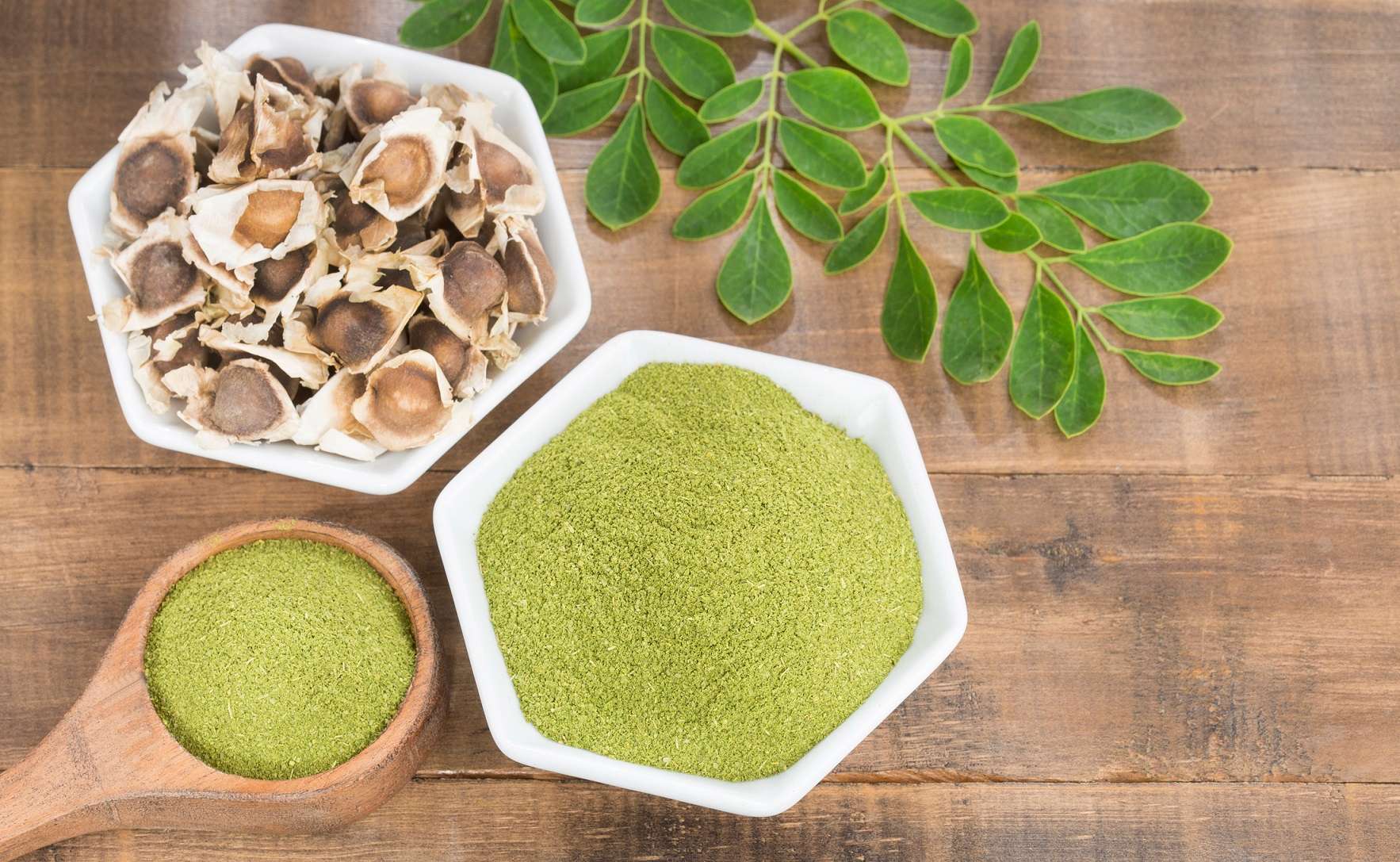
Side effects of Moringa
Moringa has laxative properties. In large quantities, it can cause stomach upsets, gaseous distension, diarrhoea and heartburn.
Avoid consuming too much as it can cause nausea.
Certain chemicals found in the roots, flowers and bark could cause uterine contractions in pregnant women. They may increase the risk of a miscarriage.
Women who are breastfeeding should avoid moringa as some of the ingredients may not be good for infants.
People on blood-thinning medications such as Warfarin should desist from consuming moringa regularly.
Seed extracts should be avoided as they can lead to toxicity in immune cells.
Compiled and penned by Crocus Media
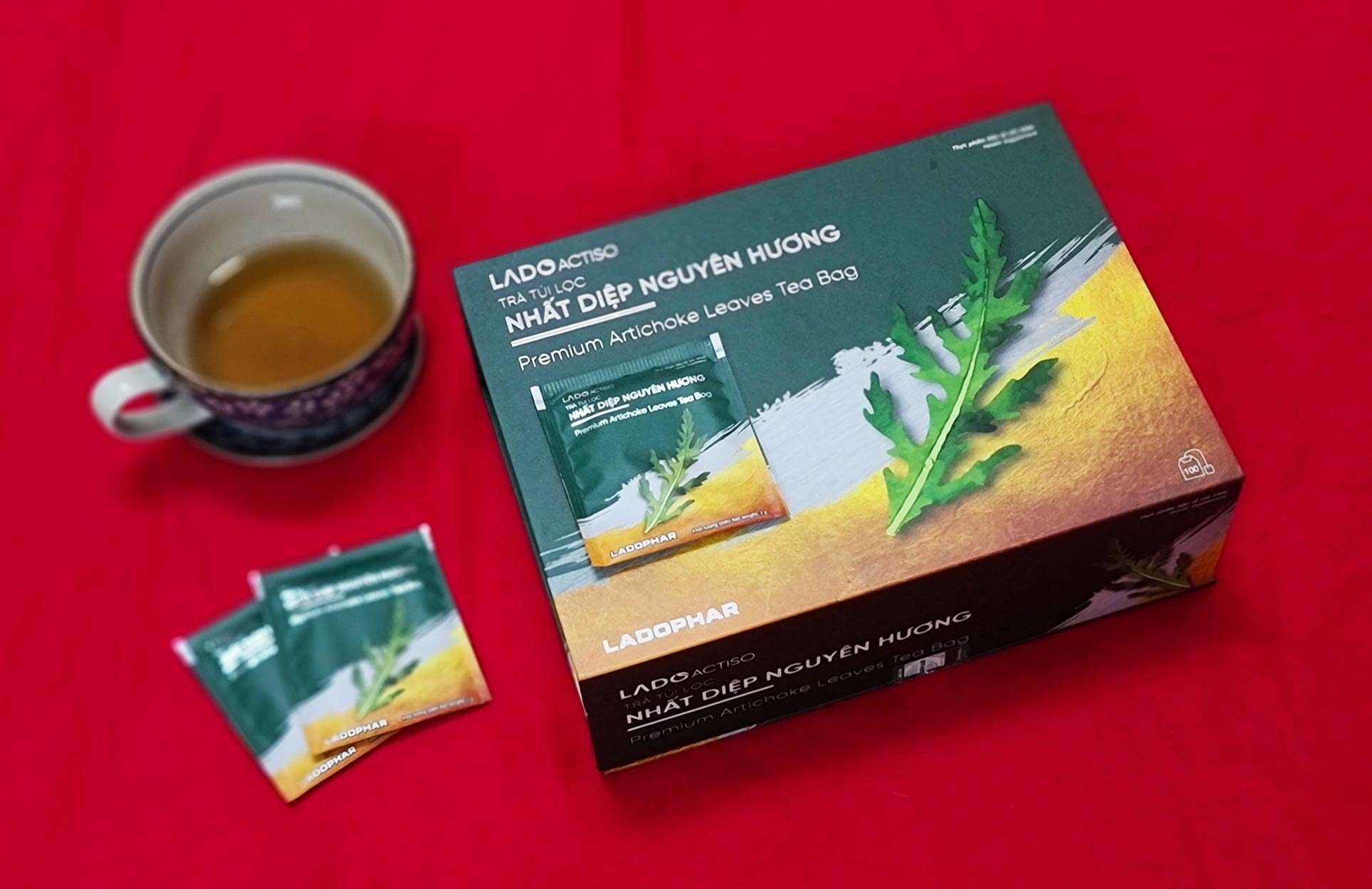
.jpg)
